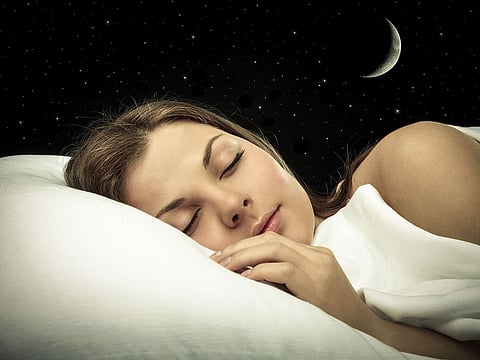Exactly how many hours of sleep do you need?
Experts release new sleep duration guidelines

There’s nothing like a good rest after a long day at work. Sleep is vital to overall health and well-being and ensures that people function at their best.
But how many hours under the sheets do humans really need to feel truly rested? Experts say the numbers vary, according to a person’s age and lifestyle.
On the occasion of its 25th anniversary this year, the National Sleep Foundation (NSF) has just updated its sleep duration guidelines after an extensive two-year study that involved 18 leading scientists and researchers.
The expert panel, which combed through 300 scientific publications and deliberated on how many hours of shut-eye a night humans require, included sleep specialists and experts in other areas of medicine, physiology and science.
They represented leading organisations like the American Academy of Pediatrics, American Association of Anatomists, American College of Chest Physicians, American Congress of Obstetricians and Gynecologists, American Psychiatric Association, among many others.
The study could not cite the exact amount of sleep needed for every age group, but the experts agreed on the following durations, as a “rule-of-thumb.”
• Newborns (0-3 months ): 14-17 hours each day (previously it was 12-18)
• Infants (4-11 months): 12-15 hours (previously it was 14-15)
• Toddlers (1-2 years): 11-14 hours (previously it was 12-14)
• Preschoolers (3-5): 10-13 hours (previously it was 11-13)
• School age children (6-13): 9-11 hours (previously it was 10-11)
• Teenagers (14-17): 8-10 hours (previously it was 8.5-9.5)
• Younger adults (18-25): 7-9 hours (new age category)
• Adults (26-64): 7-9 hours ( no change)
• Older adults (65+): 7-8 hours (new age category)
Charles Czeisler, MD, PhD, chairman of the NSF board and chief of sleep medicine at Brigham and Women’s Hospital, says that a lot of people rely on the foundation’s sleep duration guidelines, so it is important to keep their recommendations as accurate as possible.
“It is the NSF’s responsibility to make sure that our recommendations are supported by the most rigorous science, Czeisler was quoted as saying.
Sign up for the Daily Briefing
Get the latest news and updates straight to your inbox



